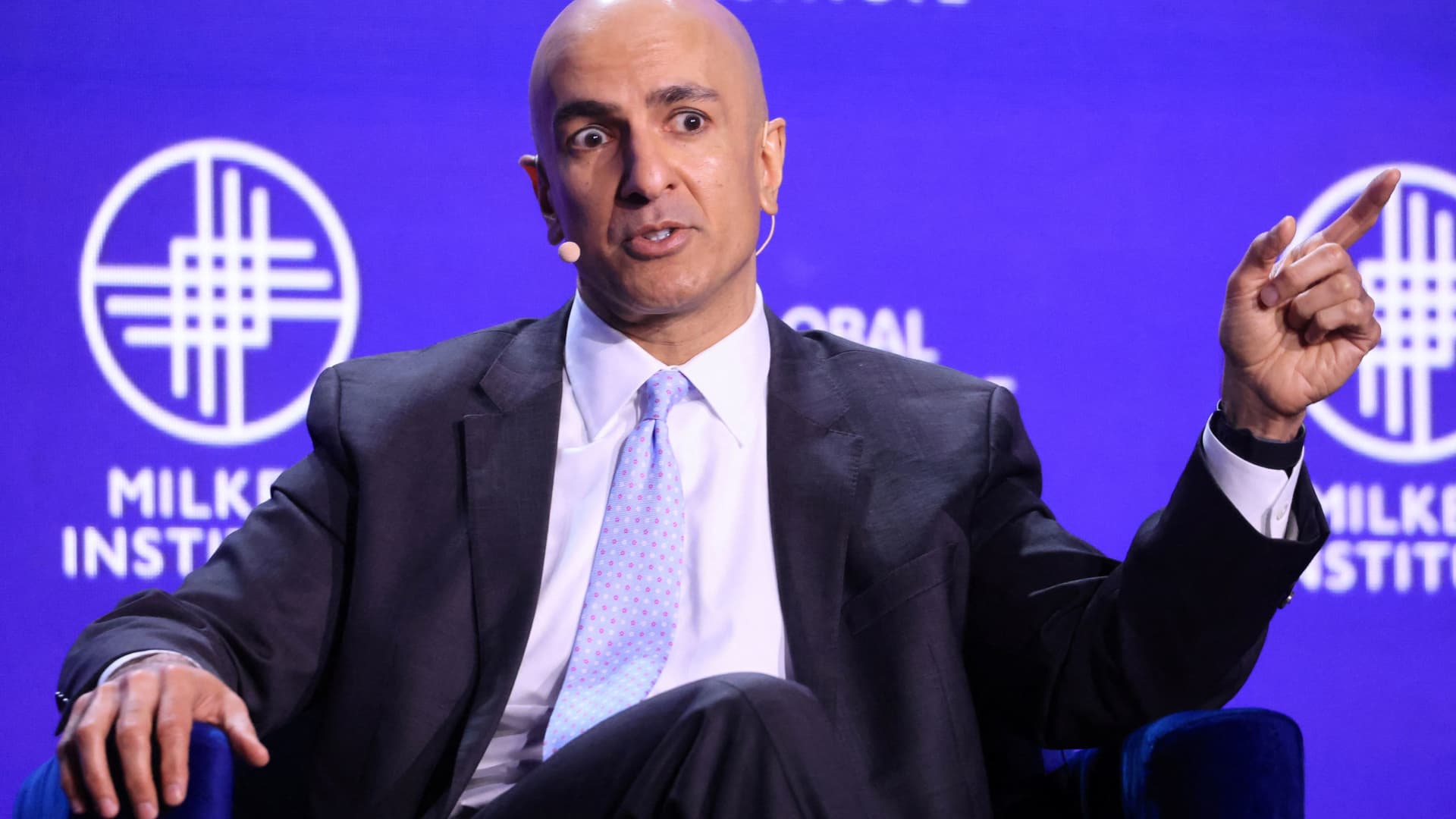Minneapolis Federal Reserve President Neel Kashkari said Monday that he expects policymakers to dial down the pace of interest rate cuts after last week’s half percentage point reduction.
“I think after 50 basis points, we’re still in a net tight position,” Kashkari said in a CNBC “Squawk Box” interview. “So I was comfortable taking a larger first step, and then as we go forward, I expect, on balance, we will probably take smaller steps unless the data changes materially.”
In a decision that came as at least a mild surprise, the rate-setting Federal Open Market Committee on Wednesday voted to reduce its benchmark overnight borrowing rate by half a percentage point, or 50 basis points. It was the first time the committee had cut by that much since the early days of the Covid pandemic, and, before that, the financial crisis in 2008. One basis point equals 0.01%.
While the move was unusual from a historical perspective, Kashkari said he thought it was necessary to get rates to reflect a recalibration of policy from a focus on overheating inflation to more concern about a softening labor market.
His comments indicate the central bank could move back to more traditional moves in quarter-point increments.
“Right now, we still have a strong, healthy labor market. But I want to keep it a strong, healthy labor market, and a lot of the recent inflation data is coming in looking very positive that we’re on our way back to 2%,” he said.
“So I don’t think you’re going to find anybody at the Federal Reserve who declares mission accomplished, but we are paying attention to what risks are most likely to materialize in the near future,” he said.
As part of the committee’s rotating schedule, Kashkari will not get a vote on the FOMC until 2026, though he does get a say during policy meetings.
The rate cut Wednesday signaled that the Fed is on its way to normalizing rates and bringing them back to a “neutral” position that neither pushes nor restricts growth. In their latest economic projections, FOMC members indicated that rate is probably around 2.9%; the current fed funds rate is targeted between 4.75% and 5%.
Speaking separately Monday, Atlanta Fed President Raphael Bostic indicated he expects the Fed to move aggressively in getting back to a neutral rate.
“Progress on inflation and the cooling of the labor market have emerged much more quickly than I imagined at the beginning of the summer,” said Bostic, who votes this year on the FOMC. “In this moment, I envision normalizing monetary policy sooner than I thought would be appropriate even a few months ago.”
Bostic also noted that Wednesday’s cut puts the Fed in a better position on policy, in that it can slow the pace of easing if inflation starts to peak up again, or accelerate it if the labor market slows further.
Market pricing anticipates a relatively even chance of the FOMC cutting by either a quarter- or half-percentage point at its November meeting, with a stronger likelihood of the larger move in December, for a total of 0.75 percentage point in further reductions by the end of the year, according to the CME Group’s FedWatch measure.

 Blog Post7 days ago
Blog Post7 days ago
 Economics1 week ago
Economics1 week ago
 Finance1 week ago
Finance1 week ago
 Economics1 week ago
Economics1 week ago
 Economics1 week ago
Economics1 week ago
 Personal Finance1 week ago
Personal Finance1 week ago
 Economics1 week ago
Economics1 week ago
 Accounting1 week ago
Accounting1 week ago










